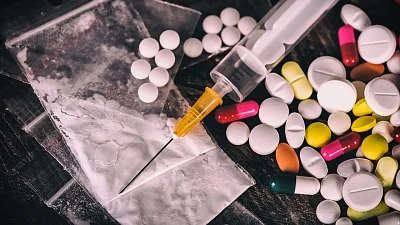With the deaths of at least 66 children in the Gambia which have been linked to the cough syrups manufactured by Haryana-based Maiden Pharmaceuticals Limited, the loopholes in India’s drug regulatory mechanism are back in the news.
In early July this year, the Centre had tabled The Drugs, Medical Devices and Cosmetics Bill 2022. The draft Bill was brought to replace the 1940 Drugs and Cosmetics Act, since the pre-independence legislation primarily didn’t say anything about medical devices or the equipment used for healthcare.
However, the draft Bill has been criticised by health experts, who've also called it "regressive."
What Was the Need To Revise the Law?
The draft Bill has been brought with a special focus to bring medical devices under the ambit of the state drug controllers. The NITI Aayog underlined that the 1940 Act was outdated and did not regulate medical devices. It also stated that the Central Drugs Standard Control Organisation (CDSCO) lacks the expertise to “check the safety and efficacy of medical devices.”
The Bill also proposes the formation of two committees – the Drugs Technical Advisory Board and the Drugs, Medical Devices and Cosmetics Consultative Committee – to advice the government on issues related to healthcare.
What Does the New Draft Bill Focus On?
The 2022 Bill has introduced a section that gives the Central government the authority to regulate e-commerce for pharma companies. While this was a much-needed regulation, there are certain queries that the draft Bill doesn’t answer.
How will the authorities make sure that the medicines being sold online are being stored at temperatures below 30 degrees Celsius, or in an environment with 70 percent humidity? What about the over-the-counter drugs that require a prescription from the doctor? What if people fake prescriptions and indulge in an overuse of medicines?
The Indian Express noted that e-commerce platforms could be asked to provide the batch numbers and expiry dates of the medicines to both the customers and the authorities for legal purposes.
The Bill has also proposed that AYUSH medicines be regulated by the Central authorities. A new committee called the Ayurveda, Siddha, Sowa-Rigpa, Unani, and Homeopathy Drugs, Medical Devices, and Cosmetics Consultative Committee will be formed. This committee will be inclusive of Sowa-Rigpa, Homeopathy, and other traditional medicines which were earlier not regulated by the Drugs and Cosmetics Act.
A statutory board, comprising experts, will be formed to bring medical devices under the ambit of the new Bill. The Medical Device Technical Advisory Board will be responsible for advising the government authorities about the technical aspects of medical devices, their clinical investigation, their quality, and health standards, etc.
The Bill has also proposed to broaden the umbrella of drugs import. Especially in emergency situations (like the first wave of the COVID-19 pandemic), Chapter VI states that the Centre can “waive the requirement of conducting a clinical investigation to manufacture or import a new medical device into the country.”
The Bill has also proposed changes for the regulations regarding clinical trials. It proposes that no clinical trial for any drugs should be allowed, in case prior permission from the Central Licensing Authority hasn’t been taken.
A stringent penalty (of imprisonment upto 10 years, which could be extended to a life sentence, or a fine upto Rs 15 lakh) will be imposed if any provisions of the Bill are violated. Additionally, compensation will be mandatory in case of injury or death during the clinical trial, which could also result in further penalty.
What Are the Criticisms Against the New Bill?
Experts have said that the Bill was playing the devil’s (in this case, the pharmaceutical industry's) advocate and allowing the manufacture and distribution of drugs even if they “fail on certain quality parameters.”
The older law stated that if the drugs were not of standard quality, the manufacturer would have to pay a fine of Rs 20,000 and could be imprisoned for upto two years. However, the Bill’s Section 56(e) proposes that while the fine could be upto Rs 2,00,000, the imprisonment would be only for an year.
Additionally, for defects that have not been listed in the draft Bill, the manufacturers could be imprisoned for upto two years and would have to face a fine of Rs 5,00,000.
However, Section 71 of the new draft Bill also allows the prosecuting drug controller to “waive a trial and prison time as long as the accused pharmaceutical company agrees to pay the fine.”
Public health activist Dinesh Thakur had earlier said to FIT, “The new Bill is so regressive.” He had pointed out how the Bill doesn’t mention anything about the need for a national drug regulator. Instead, it decriminalises what is currently holding the pharma companies accountable.
Prashant Reddy, another public health activist, had also told FIT that the Bill was drafted by bureaucrats who are already in the system and are “not interested in altering the status quo.”
Agreeing with Reddy, Thakur had added that pharma companies have often lobbied together to water down any provisions that would focus on a consumer-oriented welfare outlook for the industry.
Bar & Bench also criticised Section 1(k) of the draft Bill saying that the definition of clinical trial is vague and “deviates considerably” from the one used by the World Health Organization (WHO).
(With inputs from Indian Express, Bar & Bench, and Lawrbit.)

